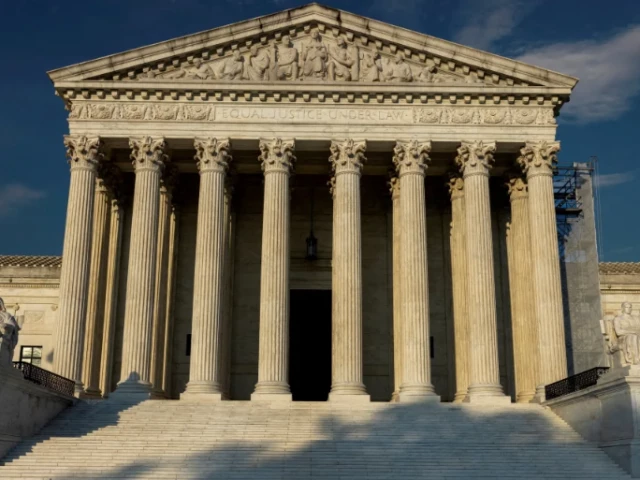US Supreme Court to hear Trump birthright citizenship case in May
The Supreme Court typically concludes oral arguments in April, making the scheduled May 15 hearing a rare move.

The US Supreme Court has scheduled an unusual out-of-term hearing for May 15 to consider the Trump administration’s emergency request to narrow nationwide injunctions that currently block enforcement of the president’s executive order restricting birthright citizenship.
The case stems from President Donald Trump’s January 20, 2025, executive order, which sought to limit automatic citizenship for children born in the US to non-citizen parents.
Lower courts in Maryland, Massachusetts, and Washington state issued sweeping preliminary injunctions preventing the policy from taking effect. The administration is now asking the Supreme Court to restrict the scope of those rulings while broader legal challenges are ongoing.
In its filing, the administration argued that the injunctions are overly broad, applying not just to the plaintiffs in the case but to "every person in the country."
It urged the justices to limit the orders to individual plaintiffs and members of their organizations, contending that the government must be allowed to issue guidance and begin implementation planning while the case proceeds.
“These cases raise important constitutional questions with major ramifications for securing the border,” the administration wrote. “This Court should declare that enough is enough before district courts’ burgeoning reliance on universal injunctions becomes further entrenched.”
Opponents, however, strongly contested the administration's request.
In a response filed in the Maryland case, lawyers argued that birthright citizenship is a fundamental principle rooted in the Constitution. They warned that lifting the nationwide injunctions would result in a fragmented citizenship policy and create “chaos.”
The Supreme Court typically concludes oral arguments in April, making the scheduled May 15 hearing a rare move that underscores the case’s significance. The outcome could have major implications not just for immigration law, but also for the broader use of nationwide injunctions in federal courts.




















COMMENTS
Comments are moderated and generally will be posted if they are on-topic and not abusive.
For more information, please see our Comments FAQ